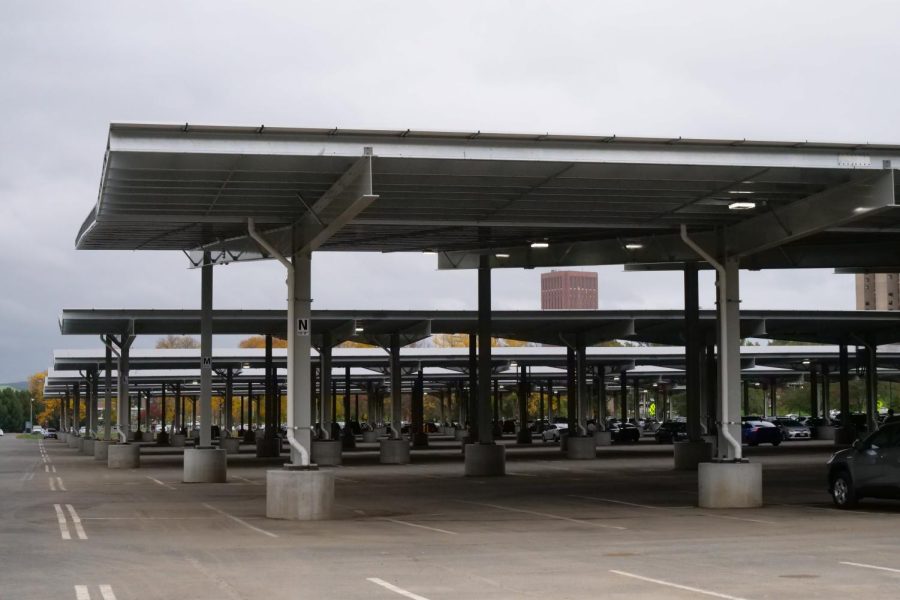The University of Massachusetts has long had problems with parking space availability. All too often, students have to park across campus from where most of their classes are. Even worse is when they cannot even use their spot because of overcrowded lots. Due to these routine parking problems not just at UMass, but across the country, many have argued that parking for students on college campuses should be free.
It is actually good, however, that parking is not free. The whole point of a college campus is that most places are just a walk or bike ride away. The use of so much land for cars is a sacrifice that we could use for much-needed housing and other amenities. Why should we allow cars to take up valuable space when they shouldn’t be necessary?
By making parking inconvenient, we mitigate unnecessary car usage in favor of walking, biking or taking the bus. Making parking difficult, however, can only do so much to decrease our college’s dependence on cars. It ensures we are less dependent on cars, but it does not make it any easier for people with no better way to get to campus, such as off-campus students.
Even better than charging for parking is replacing it with living space and amenities so that less students have to commute. The truth is that students want to be able to live near campus. Who wants to spend hours driving to classes every week?
Building more housing on campus—on current parking space, if possible—would reduce students’ car reliance and make the campus more walkable and livable. Due to the suburban, highly car-dependent nature of the surrounding area, to truly rein in our overreliance on cars—and by extension, parking space—we need to ensure that we have enough bus lines, as well as access to other mass transit like trains when going further off campus.
Improving access for people with disabilities is another part of the puzzle. Given growing concerns about our campus’ lack of accessibility for people with a disability, their dependence on cars could be reduced by greater investments in disability-friendly infrastructure.
The need to not just disincentivize parking, but also to replace it, is not unique to UMass. From the suburbs to big cities, we have become so dependent on cars and parking that we have not realized the waste of space they are.
A movement to replace parking space with housing and businesses, facilities and other amenities across the country would be a fundamental restructuring of our society: from one where you need to drive everywhere, to one where you no longer need a car to participate in society.
In dense cities like New York, Chicago and Boston, we have real-world examples of how the need for parking is artificial, and how it is a need we can reduce. Since a mix of apartments, businesses and other amenities take up all of the space, people can walk or bike to most places they need to go to. The result is communities that are not only more connected, but also more healthy and environmentally sustainable.
This idea of not just charging for parking but eliminating the need for it is easier said than done, especially when such a large portion of our community has to commute because of the campus’ distance from important housing and businesses. However, we have to start somewhere. Making it excessively inconvenient to park on UMass’ campus—and, by extension, drive—is a step in the right direction.
Liam Rue can be reached at [email protected].




















John Smith • Feb 18, 2022 at 12:56 pm
An effective mass transit system should co-exist with cars, not replace them entirely. The freedom car ownership provides and the contributions it makes to having a modern civilization is very underappreciated these days. As we transition to electric cars their impact on the environment will be less. My point is the parking system is ridiculously unfair to Umass customers. It’s not the fault of the people who work at Parking Services, they are doing their best to enforce an absurd mandate. They should build another parking garage, centrally located on campus. Instead the out of touch administration continues to build buildings on top of parking spaces.